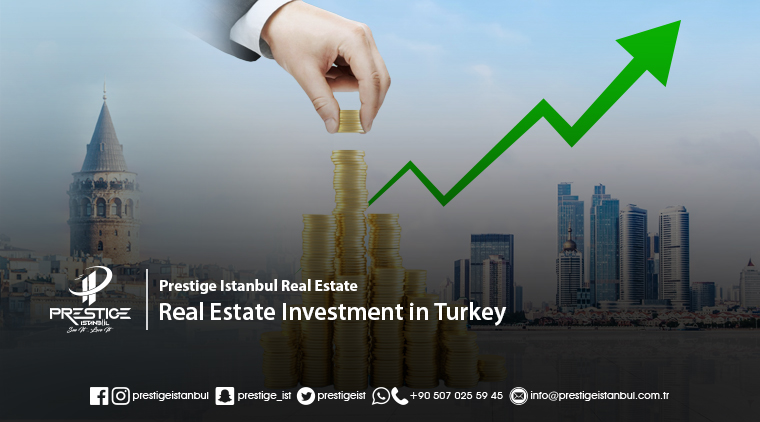
There are many reasons why foreigners prefer to buy or invest in real
estate in Turkey.
The property prices in turkey are relatively lower compared to Europe
and the United States despite the successive price increases over the last few
years, especially in main cities such as Istanbul, Antalya, Bursa and Yalova.
What
encourages the investment in Turkey?
- Turkey's political and social stability.
- Guaranteed
residence permit rights for foreigners who own properties in Turkey.
- A thriving economy: GDP has raised more than 3 times up to $857 billion in 2016 compared to $231 billion in 2002, "Turk sat."
- Stable
annual economic growth with an average growth rate of 5.6% between 2002 and
2016.
- A
promising economy with a brilliant future, as it is expected to become one of
the fastest growing economies within the OECD during the period 2017-2020.
- The world's 13th largest economy and fifth largest economy compared to the European Union in 2016.
- An
institutional-based economy with the support of US $ 145 billion in foreign
direct investment over the last 10 years.
- Healthy
private sector with exports worth $143 billion and an increase of 300% between
2002 and 2016.
Why
real estate investing in Turkey?
- Property prices in Turkey are constantly
rising due to increased foreign demand.
- Turkey is one of the world's largest price growing markets according to the "Knight Frank International Index".
- Turkey ranks second in the most attractive real estate markets, according to "Ernst & Young".
What are the types of real estate investment in Turkey?
- Buying a property and rent it: buying a property and rent it and ensure a fixed monthly income. The average annual return on rent is about 4% of the property price.
- Buying and re-selling: Buying a property
in an under-construction project in one of the vital areas close to the
transportation which increases the property price.
- Land purchasing: The purchase of land in strategic sites that may be included within the organizational charts of the city which increases the property price.
- Real Estate Development: Buying a land in a strategic location and developing a distinctive real estate project with integrated services that guarantee a high profit return.
- Urban transformation projects: the development of old buildings and the possible to collapse and non-resistance to earthquakes buildings to new resistant to earthquakes and natural disasters, while allowing a larger construction area to the developing company to cover the costs of the project and achieve a distinct profit margin.
The Urban Transformation Project
The Urban Transformation Law was enacted in
Turkey in order to develop all old buildings that are not resistant and prone
to earthquakes to new earthquakes and natural disaster resistant buildings
considering the maintenance of public services, improved living conditions
and the surrounding environment. The Turkish
government aims to develop approximately 15 million property under the law of
urban transformation with a budget of more than $ 400 billion.
The
Turkish government encourages investors and real estate developing companies to
complete this huge project by providing many facilities from taxes exemption.
The law aims to develop the properties with
the agreement owners and to be done in a specified period of time and with the
same old area, while allowing a larger construction area for the developing
company in order to cover the costs of the project and achieve a distinct
profit margin.
implementation procedures for the urban transformation project
- Determine
the building to be renovated.
- The
construction company shall provide a specific offer to the owner of the
property, including the agreement on the new spaces and finishing quality,
public services and facilities such as elevator, parking, security and gardens.
- The
agreement must be signed between the construction company and all the owner
without exception.
- The
construction company shall pay rent to the owners during the duration of the
project to find temporary housing until completion of the project, usually
lasts 18-24 months depending on the size of the project. in addition, the
developing company pays the transfer costs to the property owner
- The
State will contribute 800 Turkish lira per month for rental paid to the owner
and and 1200 transferring costs for each property owner.
- Contracts
registration.
- Obtaining the construction permits, which are often larger than the previous area of the property, so the developing company covers the construction costs and achieves profit margin between 40% and 60%.
- Evacuation
of the building within 3 to 4 weeks.
- Start
the demolition process.
- Reconstruction.
- Finishing and delivery.